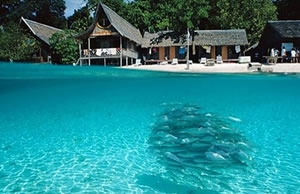- 23 reads

In recent months, there have been plenty of stories about tainted food and paint in the United States harming people whose only crime is trusting the food inspectors in the government. While one would hope that the attention called to these problems would result in them being fixed, or at least ameliorated, it is always better to do something yourself. Listed below are some key facts about food and food safety that may help you out the next time your in a sticky situation.
- Only 1% of imported food is inspected. Because the federal government refuses to implement a country of origin labeling program for meat and produce, consumers don't have the facts they need to avoid low-quality food from overseas.
- Despite new research that shows that artificial hormones may contribute to a fivefold increase in twin pregnancies for American women, the federal governments allows them in dairy products, despite the fact that they are banned in Canada and Europe.
- The US Department of Agriculture organic Seal is the only label for meat, dairy and eggs that is sanctioned by the federal government. To be labeled a USDA certified organic product, its producer must meet the organic standards established of and be certified by the USDA.
- In grocery stores, food that has been irradiated must be labeled as such and include a Radura Symbol. Food products bearing this label should probably be avoided as no long-term studies currently exist about the long-term health effects of eating irradiated food. Unfortunately irradiated foods sold in restaurants, schools and hospitals, as well as processed food containing irradiated ingredients are not required to have the label.
- Cage free is a label that indicates that the birds are raised without cages. However this does not describe any of the other conditions where the birds have been raised, so eggs produced by birds raised indoors in overcrowded conditions without access to pasture could still be labeled as cage free.
- Seafood: Avoid imports! Less than 1% of imported seafood is tested for contaminants. Imported shrimp, in particular, is notoriously contaminated. Also, avoid processed seafood which travels farther, uses more fuel and lacks country of origin labeling.
- Avoid farm raised marine finfish, especially salmon. They can threaten wild fish populations and are fed chemicals that can be harmful to consumers.
- Choose farm raised mussels and clams, which are often raised sustainably by small-scale operations.
- Eat a variety of fish to reduce your exposure to possible seafood contaminants and to relieve pressure on wild populations.
Some of the best options out there include farm raised catfish, farm raised clams, muscles, and oysters, farm raised arctic char, long line Pacific cod, Canadian snow crab, crayfish US farmed, Atlantic croaker and herring, Pacific halibut, wild Alaskan salmon, farm raised bay scallops, wild striped bass, albacore tuna and skipjack tuna; just to name us few rated by FoodandWaterWatch.org.
GREENandSAVE.com is a free resource for anyone that wants to save energy, money, and the environment. The articles, product reviews, online tools, and return on investment calculations are researched from a diverse range of public and private sector sources. Overall, the company is passionate about saving money as well as creating healthy homes, offices, and lifestyles.
For tips on how to live a Greener life, check out GREENandSAVE’s section on Green Lifestyle. While there, it might help out to take a look at some great Home Remodeling Tips.

